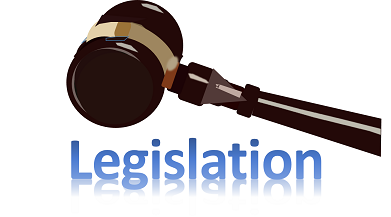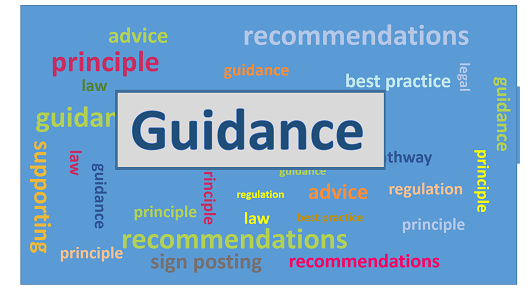Safeguarding News March 2024
Dear Colleague,
Welcome to this month's safeguarding newsletter covering essential newsworthy items from March 2024.
In this edition we highlight two innovative partner services that will benefit those working in education and staying with schools, there is new guidance for safegurading leads, headtechers and senior leaders on how to respond to incidents involving inappropriate image sharing.
In the Regulators section we highlight the new guidance for charities facing decisions about donations, whilst in Online Safety we detail the alarming rise in animal abuse reports across social media channels.
Finally and due to increasing demand, we have published some additional Blended Learning training dates.
Wellbeing Coaching for Educators
If you are involved with education SAFEcic has teamed up with our local, valued partners CoachED, who are offering free consultations to promote their innovative Wellbeing Coaching model for educational staff.
CoachED’s directors Mat and Helen say:
Teacher wellbeing today could not be more significant. The recruitment and retention crisis features in the news and social media nearly every day. The government has missed its secondary teacher recruitment targets for nine out of the past ten years. Nearly 40,000 teachers left the profession by the end of 2022 for reasons other than retirement. Teachers are reporting the pressures of Ofsted, as well as the growing workload and ever varying expectations of their day-to-day role. It is paramount that we do everything we can to enable teachers to do their job to the best of their ability, as well as giving them the skills and reflective capabilities to want to stay in the profession. Teachers are the greatest resource that our schools have. Hattie’s barometer (Hattie: 2009) underlines that it is the skill set and interventions of the teacher that have the biggest effect on pupil progress. It follows, that we need to do everything we can to ensure that this resource is nurtured.
This has been further highlighted by the recently updated Staff Wellbeing Charter from the DfE. The charter highlights the importances of the wellbeing and mental health of all teaching staff. It also states that improved staff wellbeing is a key outcome of educational policy. Points 7 and 8 of the charter assert that schools should embed wellbeing as part of training and professional development and improve access to mental health and wellbeing resources respectively. It emphasises that schools should provide resources to enable staff to feel empowered to take ownership of their own mental wellbeing as well as looking out for the wellbeing of others.
At CoachED we could not agree with this more. As practising teachers, we recognise both the importance of this, but also the time constraints on staff in schools. This was why the CoachED Wellbeing Coaching model was created. It is a fully resourced programme that is simple to understand and easy to embed into school culture. The resource provides everything you need to enable teachers to coach each other, using an empathetic approach. It is not instructional coaching. It focuses on the person, reflecting on themselves and empowering them to take ownership of moving themselves forward as an individual and a teaching practitioner. This will undoubtedly lead to better mental wellbeing, better retention of staff and ultimately better outcomes for pupils.
To find out more visit coachedforschools.uk and request a free consultation.
Healthy School Culture
SAFEcic is also working with colleagues from Life Lessons who are dedicated to providing a  whole-school approach to Relationships, sex and health education (RSHE) that supports a healthy school culture. To help schools implement the DfE guidance, Summary of responsibilities where a mental health issue is affecting attendance, we are running a free joint webinar Anxiety and Attendance: The link between Curriculum and Safeguarding - Life Lessons, on 11th June 2024.
whole-school approach to Relationships, sex and health education (RSHE) that supports a healthy school culture. To help schools implement the DfE guidance, Summary of responsibilities where a mental health issue is affecting attendance, we are running a free joint webinar Anxiety and Attendance: The link between Curriculum and Safeguarding - Life Lessons, on 11th June 2024.
FundRaiser: Family Skydive for Alzheimer’s Society Becky Draper, SAFEcic's social media guru has decided to jump out of a plane!.
Becky Draper, SAFEcic's social media guru has decided to jump out of a plane!.
In June 2024 Becky, who has a fear of heights and husband Mike, who doesn't like flying, are going to complete a parachute jump for charity. They will be joined by their son Will and his partner Harry along with Harry's father Simon.
The scheduled jump is in support of Diane Leader, a family friend who is the 2024 Ladies Captain at Diss Golf club in her mission to maximise fundraising for the Alzheimer's Society, an organisation and cause close to the family's hearts.
If you would like to help Becky and her family achieve the £500 target you can contribute by clicking here
Any support would be greatly appreciated.
SAFEcic Blended Learning Training Calendar
Leading on Child and Adult Safeguarding
Safeguarding Training, Leading on Child and Adult. Online course plus Zoom
Thu 23 May 2024
10:30 - 12:00 GMT
Safeguarding Training, Leading on Child and Adult. Online course plus Zoom
Wed 26 June 2024
10:30 - 12:00 GMT
Safeguarding Training, Leading on Child and Adult. Online course plus Zoom
Tue 6 Aug 2024
10:30 - 12:00 GMT
Safeguarding Training, Leading on Child and Adult. Online course plus Zoom
Wed 11 Sept 2024
10:30 - 12:00 GMT
Safeguarding Training, Leading on Child and Adult. Online course plus Zoom
Thu 3 Oct 2024
10:30 - 12:00 GMT
Safeguarding Training, Leading on Child and Adult. Online course plus Zoom
Tue 5 Nov 2024
10:30 - 12:00 GMT
Safeguarding Training, Leading on Child and Adult. Online course plus Zoom
Wed 4 Dec 2024
10:30 - 12:00 GMT
Standard Child and Adult Safeguarding
Safeguarding Training, Standard Child and Adult. Online Course plus Zoom
Fri 10 May 2024
10:30 - 12:00 GMT
Safeguarding Training, Standard Child and Adult. Online Course plus Zoom
Tue 2 July 2024
10:30 - 12:00 GMT
Safeguarding Training, Standard Child and Adult. Online Course plus Zoom
Thu 19 Sept 2024
10:30 - 12:00 GMT
Safeguarding Training, Standard Child and Adult. Online Course plus Zoom
Tue 26 Nov 2024
10:30 - 12:00 GMT
Safeguarding: Trustees’ legal responsibilities
Safeguarding: Trustees' legal responsibilities. Online Course plus Zoom
Wed 5 June 2024
10:00 - 11:30 GMT
Safeguarding: Trustees' legal responsibilities. Online Course plus Zoom
Wed 10 July 2024
10:00 - 11:30 GMT
Safeguarding: Trustees' legal responsibilities. Online Course plus Zoom
Wed 25 Sept 2024
10:00 - 11:30 GMT
Safeguarding: Trustees' legal responsibilities. Online Course plus Zoom
Tue 15 Oct 2024
10:00 - 11:30 GMT
Safeguarding: Trustees' legal responsibilities. Online Course plus Zoom
Tue 3 Dec 2024
10:00 - 11:30 GMT
Safer Recruitment Training. Online course plus 2 Hr Live Online training
Tue 4 June 2024
10:00 - 12:00 GMT
Safer Recruitment Training. Online course plus 2 Hr Live Online training
Tue 11 July 2024
10:00 - 12:00 GMT
Safer Recruitment Training. Online course plus 2 Hr Live Online training
Tue 24 Sept 2024
10:00 - 12:00 GMT
Safer Recruitment Training. Online course plus 2 Hr Live Online training
Wed 6 Nov 2024
10:00 - 12:00 GMT
Managing and Leading on International Safeguarding
Managing and Leading on International Safeguarding Training. Online course plus Zoom
Tue 10 Sept 2024
10:00 - 11:30 GMT
SAFEcic's free hub resources by setting are available through the SAFEcic.co.uk main menu. Alternately you can bookmark the links below:
Education | Dental | Charities | GP & Primary Medical Services | Fath Groups | Entertainment & Leisure | Working Overseas |
Legislation

Isle of Man
New sexual offence laws came into effect March 25 2024
Source: Isle of Man Government published on the SAFEcic website Tuesday 26 March 2024
The new Sexual Offences and Obscene Publications Act will modernise existing legislation, increase maximum penalties and strengthen sentencing powers for offences against children.
The Act, which comes into effect today, will introduce crimes like voyeurism, revenge porn and ‘upskirting’ into Manx law, reflecting changes in technology that have led to new types of offending.
This follows Tynwald approving the regulations and order which are required by the new law.
In addition to the new offences, the Act will outlaw conversion therapy, update child abuse and child exploitation offences, and revise court anonymity rules. Sexual Harm Prevention Orders and Sexual Risk Orders will also be introduced, which will allow controls such as curfews and exclusions to be placed on those who pose a sexual risk to others even before a conviction or guilty plea. The Act also contains more stringent notification requirements for convicted sex offenders.
The full Sexual Offences and Obscene Publications Act 2021 is available online.
Minister for Justice and Home Affairs, Jane Poole-Wilson MHK, said:
‘The modernisation and strengthening of these laws is a significant step towards making our communities safer, and making sure that we are dealing with these awful crimes in an appropriate and robust way. The Act will enable our Courts to give stronger punishments, and give the police more flexible powers to keep victims and the public safe from these harms. I am very grateful to all those who have been involved in the journey of this Act and, in particular, the significant amount of preparation ahead of go-live on 25 March.’
Anyone who believes they have been the victim of a crime outlined in the new Act should contact Douglas Police Headquarters on 631212 or 999 in an emergency.
There has been an extensive training programme across Government and the Police to ensure all parts of the organisation are ready to deal with the new law.
If you’ve been affected by any of the issues in this release, there are details available of local organisations that provide advice on our wellbeing support webpage.
Good Practice Guidance

Guidance: Sharing nudes and semi-nudes: how to respond to an incident (updated March 2024)
This advice is for Designated Safeguarding Leads (DSLs), their Deputies, Headteachers and senior leadership teams in schools and educational establishments in England. Other members of staff should see a one-page summary on how to manage incidents available on the UK Council for Internet Safety’s (UKCIS’) website. This document may also act as good practice advice for out-of-school settings providing education for children and young people in England (e.g. extracurricular clubs, youth organisations and providers).
This advice outlines how to respond to an incident of nudes and semi-nudes being shared including:
- risk assessing situations
- safeguarding and supporting children and young people
- handling devices and images
- recording incidents, including the role of other agencies
- informing parents and carers
The types of incidents which this advice covers are:
- a person under the age of 18 creates and shares nudes and semi-nudes of themselves with a peer under the age of 18
- a person under the age of 18 shares nudes and semi-nudes created by another person under the age of 18 with a peer under the age of 18
- a person under the age of 18 is in possession of nudes and semi-nudes created by another person under the age of 18
This advice does not cover children and young people under the age of 18 sharing adult pornography or exchanging sexual texts which do not contain images.
This advice is non-statutory, and schools and colleges should read this alongside:
- Keeping children safe in education: statutory guidance (DfE)
- Searching, screening and confiscation: non-statutory advice (DfE).
The advice replaces ‘Sexting in schools and colleges: responding to incidents and safeguarding young people’ published in 2016 by UKCIS in collaboration with the NSPCC and Charlotte Aynsley.
Practitioners working in education settings in Wales should see the following advice on responding to incidents: Sharing nudes and semi-nudes: responding to incidents and safeguarding children and young people
Practitioners working in education settings in Scotland should see the following guidance and advice for responding to incidents and safeguarding children and young people in Scotland:
- National Guidance for Child Protection in Scotland
- Healthy relationships and consent: key messages for young people (Scottish Government)
- Upstream (Stop It Now! and the Scottish Government)
- What’s the problem? (Stop It Now!)
- Internet safety for children and young people: national action plan (Scottish Government)
Inquiry and Review Reports

1 The Angiolini Inquiry: Part one examining Wayne Couzens’ career and previous behaviour
An independent inquiry into how an off-duty Metropolitan police officer was able to abduct, rape and murder a member of the public. This is to ensure the victim’s family and public get a full explanation of the causes of, and factors contributing to, this tragic and harrowing murder.
Part 1 is focussed on examining Wayne Couzens’ career and previous behaviour. It will establish a definitive account of his conduct, behaviour and performance leading up to his conviction, as well as any opportunities missed such as decision making relating to vetting.
Following the sentencing of former police officer David Carrick in February 2023, the Inquiry is also examining the Carrick case to establish an understanding of Carrick’s career and previous conduct.
Part 2 of the Inquiry addresses broader issues raised by both cases in respect of policing and the protection of women.
2 Shattered lives, stolen futures: The Jay Review of Criminally Exploited Children
Source: Action for Children published on this website Monday 25 March 2024
Tens of thousands of children and young people are at risk of being exploited across the UK – groomed, coerced and threatened into a life of violence, criminalisation and abuse the review tells us. The review’s conclusion in that a new approach is needed to end this crisis.
In response to this crisis, Action for Children launched the Jay Review of Criminally Exploited Children in November 2023. The aim was to learn from what’s working well to protect children from exploitation and determine what more can be done.
The Review was chaired by Professor Alexis Jay CBE, chair of the Centre for Excellence for Children’s Care and Protection and former chair of the Independent Inquiry into Child Sexual Abuse. Professor Jay was supported by Simon Bailey CBE QPM, the former Chief Constable of Norfolk Constabulary, and a member of the Child Safeguarding Practice Review Panel from 2021-2024, and Charles Geekie KC, a barrister specialising in areas of the law relating to children and a Trustee of Action for Children.
Key lessons
They Review team listened to those with lived experience, to professionals and to experts from across the four nations of the UK, a number of key lessons stood out:
- The absence of a clear and consistent definition of the criminal exploitation of children is a barrier to protecting and supporting them.
- Existing legislation and criminal processes are not fit for purpose and are leading to vulnerable children being failed.
- Too many exploited children are treated as criminals rather than victims and do not receive a child protection response.
- The lack of data on exploitation makes it more difficult to identify, prevent and respond to it.
- School is an essential protective factor in children’s lives, but education providers do not always have the right tools to identify and support children at risk.
- Local safeguarding arrangements are not always effective in supporting children at risk of extra-familial harm (or harm outside their family home), including exploitation.
- Early intervention is essential to prevent and disrupt exploitation but a decade of funding cuts in early intervention services has restricted the ability of services to respond.
- Serious, preventable harm to children is being caused by a lack of national leadership. There is no consistent strategy, leadership and focus from central government on tackling criminal exploitation as an urgent and preventable crisis.
3 Derby and Derbyshire Safeguarding Children Partnership publish THEO Local Child Safeguarding Practice Review February 2024
This Local Safeguarding Practice Review was undertaken in response to the death of Theo on Christmas Day 2022. He had suffered 130 injuries before his death inflicted by his parents who are now in jail for his murder. The injuries and subsequent death of the baby happened during the Covid 19 pandemic. The review describes opportunities were missed and lessons from many previous reviews were not learned. A summary of progress report has also been published by the Derby and Derbyshire Safeguarding Children Partnership has also been published.
Research Reports, Consultations and Studies

1 Young people urged to wear seat belts in new lifesaving campaign
A new campaign to remind young men to CLICK their seat belt in a bid to shift attitudes and save lives on roads across England and Wales was launched 18 March 2024. Every week, 4 young people aged 17 to 29 are either killed or seriously injured on our roads when not wearing a seat belt, with young men more likely to not wear one, especially on short or well-known journeys. In 2022, 30% of fatalities among 17- to 29-year-olds were unbelted.
To help combat this, alongside targeted advertising on roadside posters, radio and social media, CLICK will collaborate with several partners, including various county football associations and local clubs to promote ‘belting up’ when travelling to matchdays to keep themselves and their teammates safe. Taxi and private hire vehicle companies, including Uber, are also supporting the campaign, and looking to introduce direct reminders to passengers to wear their seat belt when making journeys in cabs.
The campaign will also serve as a reminder of the importance of wearing a seat belt when travelling on a minibus, bus or coach, with operators expected to clearly signpost rules and individual responsibilities when it comes to belting up, and with passengers over 14 expected to take responsibility for themselves and ensure they are buckled up.
2. Reform of children's social care in England: A Research Briefing March 2024
The research briefing provides up to date information and research to inform the reform of children’s social care in England. On 2 February 2023, the Government published an implementation strategy and consultation on reforming children’s social care in England: Stable Homes, Built on Love. The strategy is based on, and formed the Government’s response to, three independent reports published in 2022:
The final report of the Independent Review of Children’s Social Care, published in May 2022.
The final report of the Competition and Markets Authority’s market study into the children’s social care market, published in March 2022.
The Child Safeguarding Practice Review Panel review into the deaths of Star Hobson and Arthur Labinjo-Hughes, published in May 2022.
Regulators

Charity Commission
1 New guidance for charities facing decisions about donations
The regulator’s new guidance makes clear that trustees should start from a position of accepting donations, but from time to time a charity may face a difficult decision as whether to refuse or return a donation. The guidance is designed to help trustees have informed discussions when faced with a choice that has potentially significant consequences. The Commission has set out an approach for trustees to take on these occasions, advising they:
- consider the risks involved in refusing or returning the donation, and how likely and serious these are. These include negative financial impact, ability to deliver services and ability to attract donations in future.
- consider the risks involved in accepting or keeping the donation, and how likely and serious these are. These include the likelihood of reduced support or reputational harm, particularly among supporters or beneficiaries.
- determine how any decision aligns with their charity’s purposes.
- determine what steps they can take to mitigate the risks. These include negotiating the terms of a conditional donation with the donor or developing a public explanation for a decision.
The regulator also warns trustees not to allow their personal views, or any external pressures that do not relate to their charity’s purposes, to influence them to act in a way that is not in their charity’s best interests.
The guidance reaffirms the importance of following existing principles which trustees must use when making any decision that will impact their charity. These principles help to ensure trustees are acting reasonably and serve only their charity’s best interests. If followed correctly, any choice will be adequately informed and evidenced.
The guidance adds that trustees should take enough time to allow sufficient information to emerge, should balance short and long-term risk and allow trustee boards to ask questions and challenge assumptions.
2 The Professional Standards Authority (PSA) has today published its priorities to help the next UK government deliver better and safer care for all.
Making care safer for all - a manifesto for change 2024 outlines the PSA’s recommendations to government to help tackle some of the big challenges within health and social care. It also outlines what professional regulation is doing to make care safer and calls for government to support regulators to allow them to do more to help.
Key recommendations include for government to:
- Prioritise work to modernise the powers of the healthcare professionals’ regulators
- Ensure that public inquiries and reviews result in lessons learned and acted upon
- Develop a regulatory strategy to support delivery of the NHS Long-Term Workforce
- Plan and manage risks to safety and public confidence
- Take steps to enhance professional development and accountability of senior managers in the NHS
- Support robust action within health and care to address discrimination in the workplace.
Online Safety

1 UK Safer Internet Centre Sees Concerning Rise in Animal Abuse Content
In the past year, the service has seen a significant rise in animal abuse reports across social media channels.
Since November 2023, Report Harmful Content can reveal that 36% of the content escalated to industry partners included animal abuse, with the vast majority involving the abuse of monkeys. During this time, Report Harmful Content has successfully been able to remove 84% of this harmful content being shared across social media platforms.
The content, which is often distressing to watch, usually involves monkeys being physically and psychologically hurt and mistreated. Concerningly, Report Harmful Content has found that alongside much of this content, many viewers have actively engaged in and encouraged their torture, revealing a concerning global trend.
A year-long investigation by the BBC revealed that many of these videos are part of a “sadistic global monkey torture ring stretching from Indonesia to the United States,” the investigation found that torture rings had customers across the world, including the United Kingdom, paying macaques’ owners to film them being tortured and killed.
Journalists discovered that social media channels had groups ranging from hundreds to thousands of people gathering to encourage and pay to see the abuse of animals. Alongside this, the videos were being distributed across various social media platforms, making them widely accessible to the general public.
Support Available
For most social media platforms, content involving animal cruelty is strictly forbidden. To support this, Report Harmful Content has continued to escalate content to be removed at the request of users, with most escalated cases resulting in the successful removal of content.
New legislation brought in under the Online Safety Act will help to enforce these guidelines further, with the Act ensuring that all social media platforms will be expected ‘to proactively tackle the illegal content and have it swiftly removed.’
The new legislation will cover all users within the UK who have seen animal abuse content on social media platforms. For more information on how to make a report to a social media platform, or to view their community guidelines, visit the Report Harmful Content website
What Can You Do If You See Animal Abuse Online?
This concerning surge in animal abuse videos, particularly those involving monkeys, is a distressing trend that demands urgent attention and action.
To report any form of animal abuse online, users should always report content directly to the social media platform it is hosted on. If the social media platform or website fails to take action, anyone over the age of 13 in the UK can use Report Harmful Content to escalate their report directly to the platform involved. Guidance on how to report content can be found on the Report Harmful Content website.
2 2024 Appropriate filtering and monitoring definitions published for public consultation
The UK Safer Internet Centre (UKSIC) has published a draft of its ‘appropriate’ filtering and monitoring definitions for 2024 for public consultation. The definitions help both schools and providers understand what is considered ‘appropriate’ and comments are invited regarding this years, proposed revisions.
Alongside the DfE’s introduction of statutory guidance and Prevent Duty obligations, UKSIC first published its filtering and monitoring definitions in 2016 to help both schools and providers understand what should be considered as ‘appropriate’.
3 Professionals' Online Safety Helpline Publishes Online Reputation Guidance
New guidance to support schools with online reputation concerns has been published. The latest guidance comes following new data from the Professionals Online Safety Helpline which revealed that 46% of contacts to the helpline involved concerns around online reputational issues.
The guidance intends to support school leaders, governors, federations, and trust leaders within schools in England. It helps schools navigate online reputational issues and better understand what resources they have available to help manage these situations. The guidance includes information on:
- Responding to online posts
- Online reputational issues that can be successfully reported
- Other routes to resolution
- Support available
The guidance considers multiple situations involving reputational concerns, including dealing with negative online reviews, online community groups and how to address concerns around images published outside of the school. Educators can also find information about reporting trademark violations and accounts involving impersonation attempts.
Further Information
Alongside the latest guidance, the Professionals Online Safety Helpline provides a series of resources to support educators or professionals working with young people. Recent resources include support around sexual harassment, making reports to social media platforms, how to handle impersonation attempts, and what to do following an incident of sexting. These can be found from the SWGfL website, who operate the helpline as part of the UK Safer Internet Centre.
Alongside this, any professional working with young people can get support with their online safety concerns by contacting the Professionals Online Safety Helpline. The helpline can be contacted by emailing This email address is being protected from spambots. You need JavaScript enabled to view it. or by calling 0344 381 4772.
Worthy of Note

Efforts to disrupt money mule activity and support exploited victims will be strengthened through a 22-point action plan was announced by the Security Minister, Tom Tugendhat on 1 March 2024. The plan will include a newly funded post at The Children’s Society to raise awareness of child financial exploitation and will also step-up joint working to identify complicit mules through the sharing of intelligence.
A money mule is someone who moves and hides illegally gained money on behalf of heinous criminals, including drug dealers, human traffickers and fraudsters.
Cifas estimates that there were 37,000 bank accounts which demonstrated behaviour associated with muling in 2023. Approximately £10 billion of illegal money is laundered each year in the UK, according to estimates from the National Crime Agency (NCA).
Around 23% of money mules are under 21, and 65% are under 30. They are often groomed by criminal gangs, who offer them the prospect of making easy money. Once they are in the system, the gangs will then coerce them into committing further offending, including through blackmail, debt bondage and sextortion.
That is why the government is funding a new Financial Exploitation Lead at The Children’s Society who will spearhead a growing movement to educate those on the front-line, including bank employees, teachers and the police. Its work will ensure thousands of children who are at risk of being exploited by criminal gangs get the support they need.
The government is publishing new frontline guidance that will enable practitioners to recognise and respond to financial exploitation linked to money laundering so that victims, and potential victims, can get the protection and support they need.
The National Economic Crime Centre (NECC), in the NCA, is already working closely with policing and the private sector, as well as those based across the continent, to crack down on money muling. In the money mules action plan, the NCA has committed to delivering a public awareness campaign on money muling, as well as to continue working with the Home Office, private sector and third sector partners on a money mules’ online hub, which will contain guidance, advice and support on the topic.
To further enhance co-operation between operational partners in this space, the City of London Police will establish a new intelligence unit to improve the police response to money mules and laundering money gained through fraud. This new unit will target money mule herders specifically, and feed intelligence into the regional organised crime unit (ROCU).
2 Urgent change is needed in England’s young offenders’ institutions, says Children’s Commissioner
In a statement issued by Children’s Commissioner for England Dame Rachel de Souza, in response to newly published HMYOI report said:
“I am both shocked and appalled by the details in Chief Inspector of Prisons Charlie Taylor’s report yesterday about a girl in a young offender institution (YOI) who had her clothes removed twice under restraint, by an all-male team of prison officers.
“We need a new vision and system of secure care. We need more, smaller settings closer to where children live that can deliver education and therapeutic support safely. This needs to be done as a matter of urgency so more children aren’t failed or put at risk.”
3 Going above and beyond: Mapping the provision and impact of Victim Advocacy in the Criminal Justice System
For many victims, the journey to justice will be the first time they have interacted with the criminal justice system, and they will need support and advice to navigate it. Victim advocates are dedicated professionals who provide support, assistance, and advocacy to a wide range of victims. This is to ensure that victims’ rights and needs are met, and that they receive appropriate support and resources. Advocates play an important role in empowering victims to navigate complex statutory procedures within the criminal justice system.
This report aims to:
- Map the current provision of victim advocates in England and Wales;
- Identify examples of where victim advocacy is working well and the benefits it provides to victims; and
- Identify gaps in victim advocacy provision and steps that can be taken to improve standards and consistency.
4 4D tech to prevent falls to be rolled out in social care settings
4D imaging technology which can prevent falls and automatically alert carers to a medical issue could soon be rolled out in more care homes across England. Whzan Guardian, a UK-developed technology, is a monitoring system that uses 4D mapping technology to track people’s movement around the house and detect falls through sensors placed around the home.
Pilots in several care homes across England resulted in a 66% reduction in falls and around a 97.5% reduction in ambulances called or required post fall, reducing pressure on the NHS and protecting vulnerable residents. The technology will now be rolled out in Redbridge Integrated Care System (ICS) for further testing after North East London Integrated Care Board (ICB) received a £1 million funding boost from the government as part of the Adult Social Care Technology Fund.
If successful, it could be rolled out to more care homes nationally.
The Adult Social Care Technology Fund was launched in April 2023 as part of the Digitising Social Care programme. The fund seeks to identify promising technology that has the potential for wider roll-out within the care sector. The programme, which is jointly delivered by the Department of Health and Social Care and NHS England, invited ICSs, care providers, local authorities and technology suppliers to submit expressions of interest to apply for funding to roll out technology.
The Digitising Social Care programme has also been supporting the scaling of Digital Social Care Records (DSCR) across England and has recently confirmed that funding and support will continue into 2024 to 2025. Areas that are on track to meet targets for DSCR adoption will be encouraged to scale other proven technologies. A toolkit to support the implementation of falls prevention and detection technologies will be published later this year.
Reasons to Remain Vigilant in All Aspects of Safeguarding

1 Doctor found with child abuse images is sentenced
A doctor employed at a Warwickshire hospital has been convicted of downloading/accessing child abuse material after a National Crime Agency investigation. Sharmake Abdulahi Maxamed, a 29-year-old Swedish national, was found in possession of over 50 indecent images and videos of children, 28 of which were category A, the most extreme.
In July 2020, the NCA was alerted by the Australian Federal Police (AFP) after an online account linked to Maxamed received a folder containing several hundred files. The file names indicated that they showed the abuse of children aged between five and 15 years of age, and the sender was an Australian national who had been arrested by the AFP after sharing indecent images of children.
In October 2021, NCA officers arrested Maxamed at his home in Leicester. His phone was seized, and officers also found a small quantity of cocaine. Maxamed’s phone was subsequently found to contain 28 category A, 18 category B, and six category C images and videos.
Evidence recovered from the device showed that he had searched for the material online and had sent messages to another user, stating that he was in his car and was going to “have a line” before returning to work. He followed this up with a photo of two lines of white powder.
He pleaded guilty to three counts of making indecent images of children, as well as the possession of cocaine, on 12 January 2024 at Leicester Magistrates Court. Today, 1 March, at Leicester Crown Court, he was sentenced to 10 months imprisonment, suspended for two years.
Maxamed did not work with children, and, as a newly employed doctor, was still being chaperoned at work prior to his arrest. His contract has been terminated.
2 Former senior social worker jailed for sexual assault against a child
A former senior social worker who attempted to arrange to meet children for sex, and admitted enjoying ‘caressing’ a young girl has been jailed for five years.
When police arrested Richard Ford in September 2022, they discovered more than 900 indecent images of children on his computers. Further enquiries revealed he had also sexually assaulted a child on three occasions.
The 51-year-old, formerly of Pembrokeshire, now Hackney, was brought to Dyfed-Powys Police’s attention by two separate police officers who were working on an operation targeting people involved in online sexual exploitation. The operation deploys undercover officers with specialist online training on a range of social media sites to identify people with a sexual interest in children.
Information provided by the undercover team showed Ford had been communicating with officers on social networks for between four and six months.
Dyfed-Powys Police’s Police Online Investigation Team (POLIT) and Criminal Investigation Department (CID) attended Ford’s home, where they seized 19 digital devices. During an in-depth forensic investigation, 913 indecent images of children were found – with more than 250 classified as Category A, the most serious. It was established that Ford was interested in girls aged between 7 and 14, and had made comments online about ‘groping’ girls.
Ford was charged with 10 offences:
- Possessing indecent photographs / pseudo photographs of a child (x4)
- Distributing indecent photographs / pseudo photographs of a child
- Attempting to cause a child aged between 13 and 15 to watch or look at an image of sexual activity
- Attempt to arrange / facilitate the commission of child sex offence
- Three counts of sexual assault
He appeared at Swansea Crown Court on Monday, February 26, where he was sentenced to five years in prison.
And Finally
Babies’ airways are vulnerable, particularly in the first few months of life, so it is important that parents and carers are aware of this and the actions they can take to protect them. The simplest way to do this is by sleeping a baby on their back on a firm, flat surface with no padded or cushioned areas. This will help to keep their airways open and reduce the risk of suffocation and SIDS. A cot, Moses basket, bassinet, carry cot, or crib all fulfil these criteria.
Many baby products on the market are not suitable for babies to sleep in, even some which are designed for this purpose. We aim to empower parents with the knowledge to make informed choices about their baby’s sleeping place and understand why some products are not suitable for baby sleep and how to identify and avoid them.
Lullaby Trust want parents to be confident about choosing a safer sleep space for their baby. We also want to advise parents in vulnerable or emergency situations what to do if they don’t have a cot or Moses basket.
This campaign will show parents and carers the simplest way to create a safe sleep space for their baby that will help to protect their vulnerable airway and reduce the risk of SIDS and accidents.
Safer Sleep Week aims to reach as many people as possible with our life-saving safer sleep advice, but we need your help!
Help us get Safer Sleep Week trending on social media and use the hashtag #SaferSleepWeek when posting on your socials. Sharing our campaign posts and free online resources is a great way to raise awareness.
Millions of people on social media alone were reached during last year’s campaign, thanks to you!
Safer Sleep Week is The Lullaby Trust’s national awareness campaign targeting anyone looking after a young baby. It aims to raise awareness of sudden infant death syndrome (SIDS) and the simple advice that reduces the risk of it occurring.
Lullaby trust know that greater awareness of safer sleep leads to a decrease in the numbers of babies dying. Sadly around 3 babies a week still die from SIDS and if all parents were aware of safer sleep advice many lives could be saved. Around 700,000 babies are born every year in the UK and we need to continue to reach out to all new parents with our life-saving messages.



